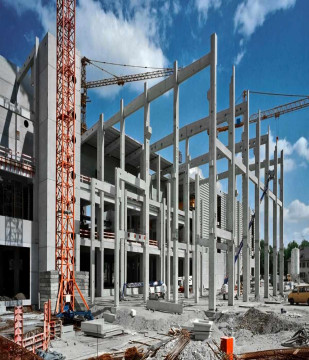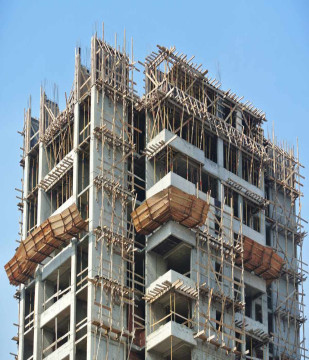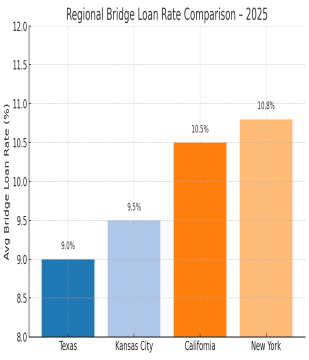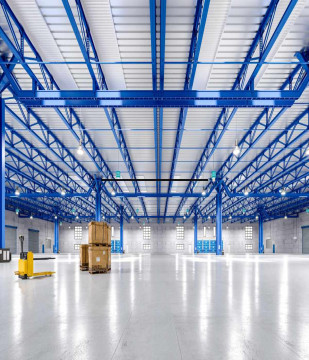Navigating Construction Financing: What You Need to Know

Terrydale Capital
Feb 19, 2025 11 Min read
 Learn
Learn
Construction financing plays a vital role in making building projects a reality. When planning to build a new property, having the right financial backing is crucial. It provides the necessary funds from start to finish, ensuring that every phase of the project is well-supported. Whether you're constructing a small space or a large development, understanding construction financing can make a significant difference.
These loans differ from typical loans due to their specialized structure tailored for construction needs. They are released in stages, following the progress of the construction. This allows developers to pay for expenses as they arise. With construction financing, builders and developers gain the flexibility and financial control they need to manage their projects effectively.
Securing the right construction loan requires careful thought and planning. From choosing the type of loan that best fits the project to understanding how to navigate the application process, every step involves important decisions. With these insights, you'll be better prepared to tackle the financial challenges and successfully complete your construction endeavors.
Understanding Construction Financing Essentials
Construction financing is a vital part of property development. It provides the funds needed to build new structures, whether they are homes, office buildings, or malls. Unlike other loans, construction financing is specially designed to meet the dynamic needs of construction projects. Funds are typically given out in stages, covering costs as the building goes up. This financial setup helps manage expenses efficiently and ensures that the project moves forward smoothly.
A construction loan typically consists of several key components. First, there is the loan amount, which covers the building expenses. Then, there's the interest rate, which is generally higher due to the short-term nature and increased risk. Another component is the disbursement schedule, where the lender releases funds based on specific construction milestones. This structured process keeps the project on track and ensures proper use of funds.
Construction financing benefits builders and developers in multiple ways. It gives them access to necessary capital without the immediate burden of long-term debt. With adequate financing, developers can focus on bringing their creative visions to life, turning blueprints into reality. This financial tool is crucial for launching projects, expanding portfolios, and achieving success in the real estate development landscape.
Types of Construction Loans Available
When it comes to construction loans, there are various options to consider. Each type caters to different needs and situations, helping borrowers find the best fit for their projects. Here are the main types of construction loans available:
1. Construction-to-Permanent Loans: These loans start as construction loans and convert into permanent loans once the building is complete. They offer convenience by eliminating the need to secure separate permanent financing.
2. Stand-Alone Construction Loans: These are short-term loans used to cover construction expenses. Once the project is finished, the borrower must secure a separate mortgage to repay the loan.
3. Owner-Builder Loans: These loans are ideal for those who wish to manage construction themselves. They require the borrower to have some construction experience or hire a professional builder to oversee the project.
Each type of loan has its features and benefits. Construction-to-permanent loans provide simplicity, as they combine financing into one package. Stand-alone loans offer flexibility and might have lower rates during construction. Owner-builder loans empower experienced individuals to take control, potentially saving costs in the process.
Choosing the right construction loan depends on your specific needs and circumstances. Consider factors like your experience with construction, your financial situation, and your long-term plans. By weighing these factors, you can find the best loan type to build your project successfully.
The Application Process for Construction Financing
Securing construction financing is a structured process that requires careful preparation. To start, borrowers must first identify the best loan option that fits their project. Once the right loan is chosen, it's time to move to the application phase.
Here are the primary steps involved in applying for a construction loan:
1. Initial Consultation: Contact potential lenders to discuss your project and learn about their loan requirements and offerings.
2. Documentation Preparation: Gather essential documents such as detailed project plans, cost estimates, a timeline, and financial statements. Lenders will require these to assess project feasibility and creditworthiness.
3. Submitting the Loan Application: Complete and submit the loan application form along with all necessary documents. The details should accurately reflect the project's scope and financial needs.
4. Lender's Review and Approval: The lender reviews the application and all documents. This involves a thorough evaluation of your credit history, repayment ability, and the project's potential.
Qualifications for construction financing often demand a good credit score, stable income, and sufficient collateral. Additionally, having a competent construction team and a solid building plan increases the chances of approval. The approval timeline may vary from a few weeks to a couple of months, depending on the lender's process.
Once the lender approves the loan, funds are released in phases. These disbursements match construction milestones, ensuring funds are available as needed and reducing financial strain during the build.
Key Considerations and Risks in Construction Financing
Construction financing comes with its set of risks. It's important to know these to manage a project successfully. Common risks include cost overruns, project delays, and fluctuating construction costs. These can significantly impact budget and timelines.
Here are some steps to mitigate these risks:
- Detailed Planning: Develop a comprehensive plan covering all aspects of construction. This should include timelines, budgets, and contingency plans.
- Cost Management: Use strict budgeting practices and track expenditures closely. Regular financial reviews help keep the project within budget and identify potential overspending early.
- Risk Assessment: Regularly assess project risks and implement strategies to manage them. This proactive approach minimizes surprises and ensures smooth project progression.
Managing costs effectively is another crucial aspect. Using cost-effective materials, negotiating with suppliers, and efficient project management help control expenses. Staying within budget is not just about cutting costs but also about smart financial planning and anticipating future needs.
For builders and developers, understanding these elements helps in navigating construction financing effectively, ensuring successful project execution.
Conclusion
Navigating construction financing requires a solid understanding of loan types, application processes, and risk management. Each project is unique, demanding careful planning and the right financial strategy. With adequate knowledge and preparation, builders can secure the necessary funding to bring their dreams and plans to life.
As you venture into property development, embracing these insights will provide a strong foundation for handling construction financing challenges. The right financial tools and strategies pave the way for successful and timely project delivery, contributing to long-term success in the real estate market.
Unlock the potential of your property development with Terrydale Capital's expert guidance and tailored financing solutions. Explore how our comprehensive real estate loans in Dallas can support your construction projects and investment goals. Visit our website to learn more and get started on building your future today.
Partner With Terrydale Capital for Your Debt Financing Needs
When it comes to debt financing, understanding the right timing, process, and options is crucial. At Terrydale Capital, we provide a comprehensive range of commercial loan solutions tailored to meet your business's unique needs.

































































































































































































































































































































































